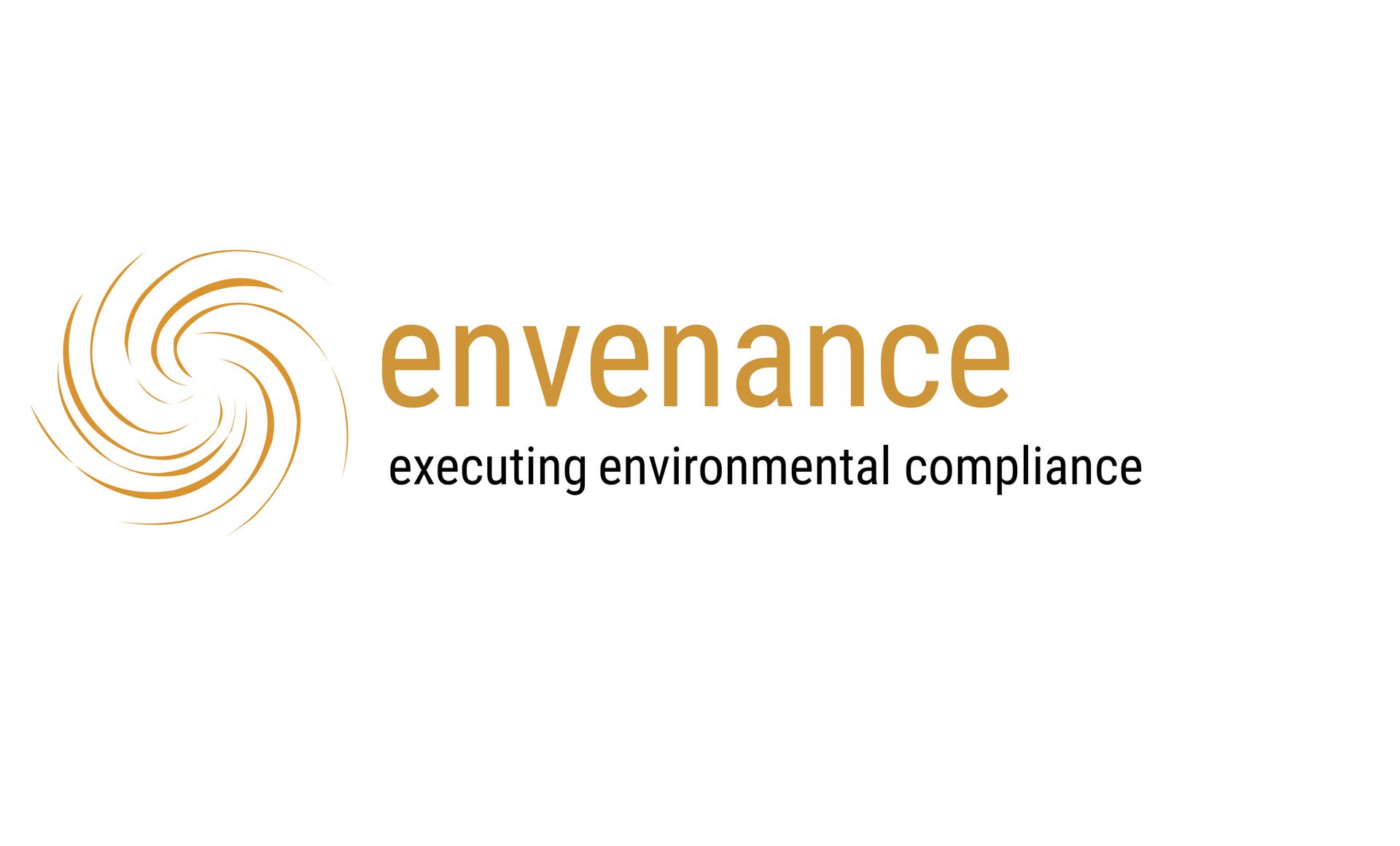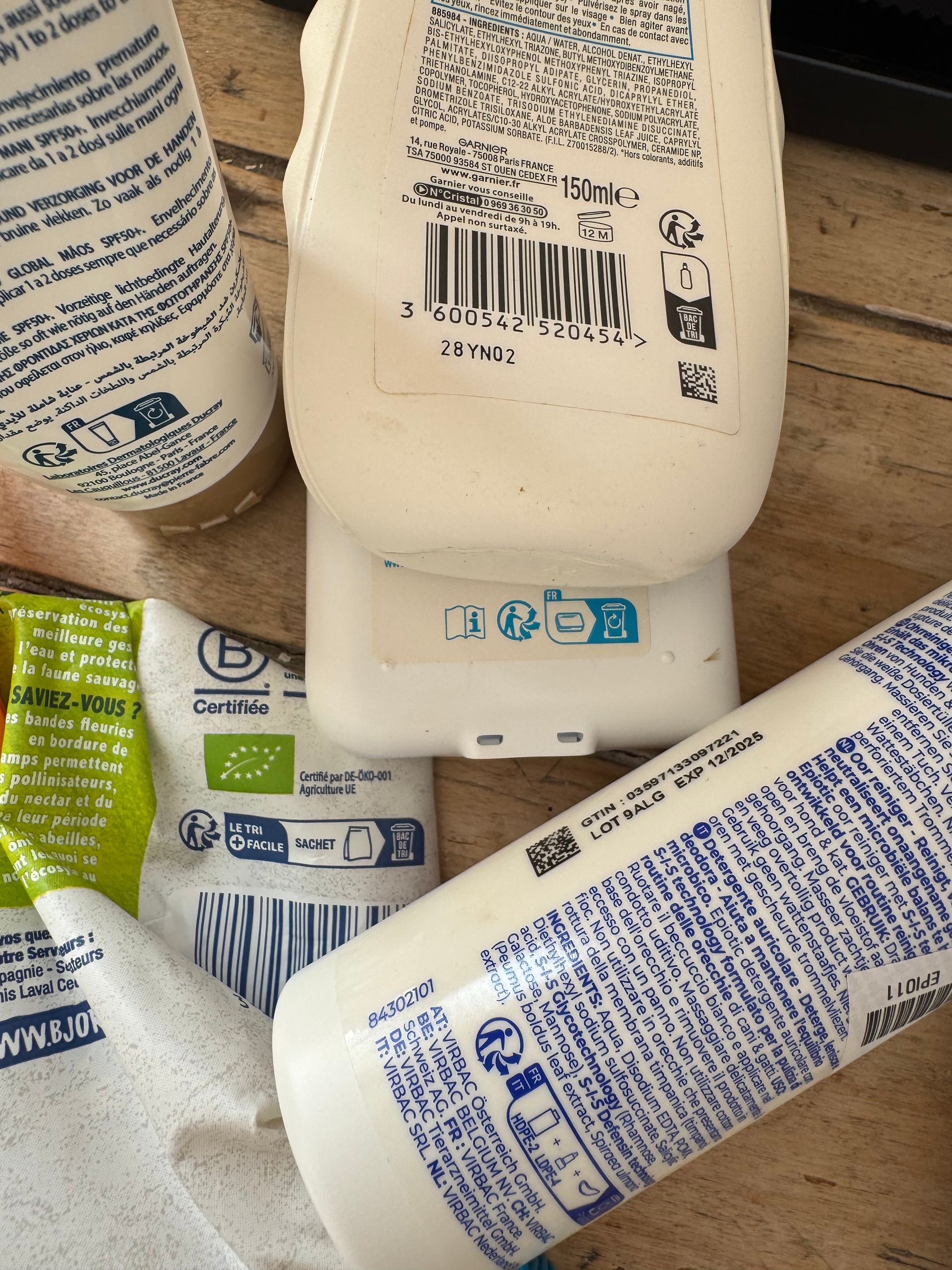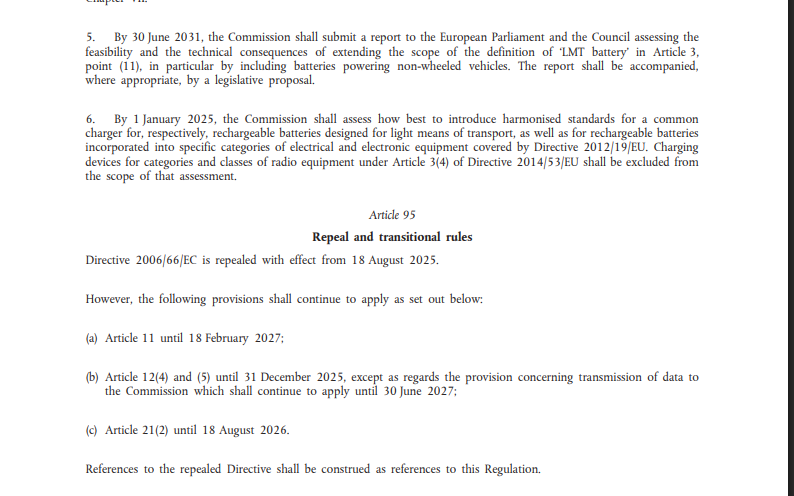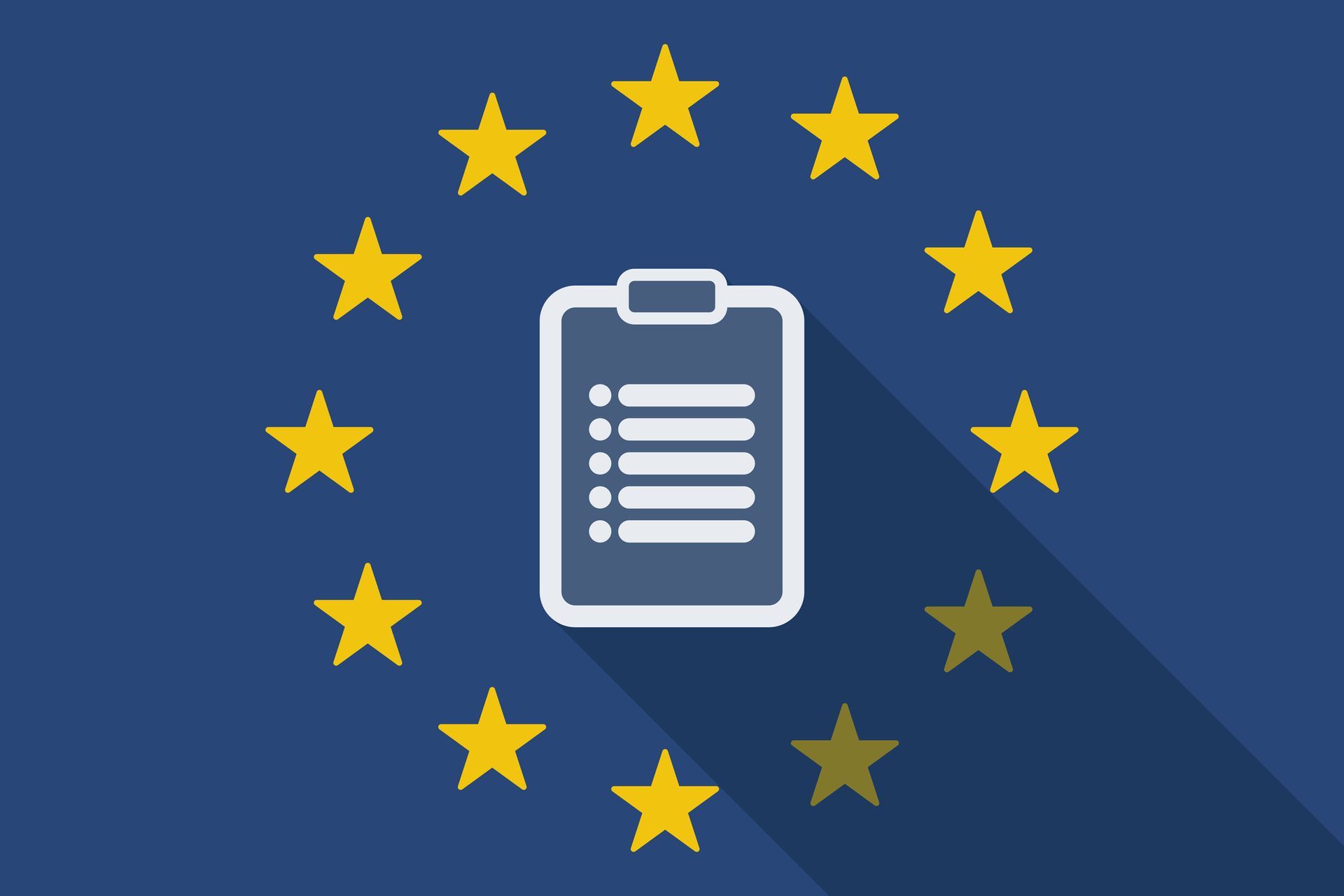Navigating the Batteries Regulation (EU) 2023/1542: What’s Deferred and What’s Transitioned?
envenance on compliance.
As the full implementation of the Batteries Regulation (EU) 2023/1542—the European Union's ambitious framework governing the extended producer responsibility (EPR) of batteries draws near, companies across the battery life cycle must understand which provisions are going ahead and which are potentially being deferred, particularly due to the recent communication of the OMNIBUS IV initiative.
OMNIBUS IV: A Simplification Package With Significant Impacts
The European Commission’s OMNIBUS IV initiative, aimed at the simplification of the administrative burden across sectors, also encompasses the Batteries Regulation. For a broader overview, we previously explored the OMNIBUS approach in our dedicated blog post.
In the case of batteries, Article 48(1) of the Batteries Regulation imposes due diligence obligations on economic operators that place batteries on the EU market. These obligations were initially scheduled to apply from the 18th August 2025. However, the Commission in its OMNIBUS IV initiative now acknowledges the geopolitical and practical challenges currently straining raw material supply chains. As stated:
“Battery raw material supply chains are affected by a shifting geopolitical landscape. This leaves the battery industry with many challenges in particular related to sourcing raw materials. It takes time to analyse and adjust supply chains.”
Moreover, only around half of EU Member States have appointed the necessary notifying bodies responsible for verifying due diligence policies. Given these gaps, the European Commission is considering a postponement of the due diligence requirements, giving economic operators more time to prepare and comply.
What Is Not Deferred: The Battery Categories Transition
While due diligence obligations may be deferred, the transition to new battery categories is not.
Starting on the 18th August 2025, all new registrations for batteries across Europe must follow the updated battery categories. Meanwhile, existing registrations and reported batteries must be migrated to the new categorisation framework.
The European WEEE Register Network (EWRN) has released a helpful guidance document outlining how to move from the previous three battery categories to the future five categories.
Country-Level Developments: Germany as a Case Study
At the national level, countries are preparing their respective legislation and procedures. In Germany:
- On the
27th May 2025, the German government published a draft version of the
Batt-EU-AnpG, the national legislation aligning German law with the Batteries Regulation. Stakeholders can submit comments on the draft until
6 June 2025.
- In parallel, the German national register for batteries, Stiftung elektro-altgeräte-register (EAR), has issued procedures for the registration transition. One crucial update: foreign companies must appoint an Authorised Representative (AR). Any registration lacking an AR by the 18th August 2025 will be cancelled.
Conclusion: Preparing for Compliance
The Batteries Regulation is set to reshape producer responsibilities across the EU and across the batteries life cycle, with key elements already transitioning and others potentially delayed.
At envenance, we help organisations navigate these complex changes—from adapting to the new battery categories to ensuring compliant registrations and representation structures.
Do you need assistance applying the new battery categories to your organisation?
Contact us at
support@envenance.com













